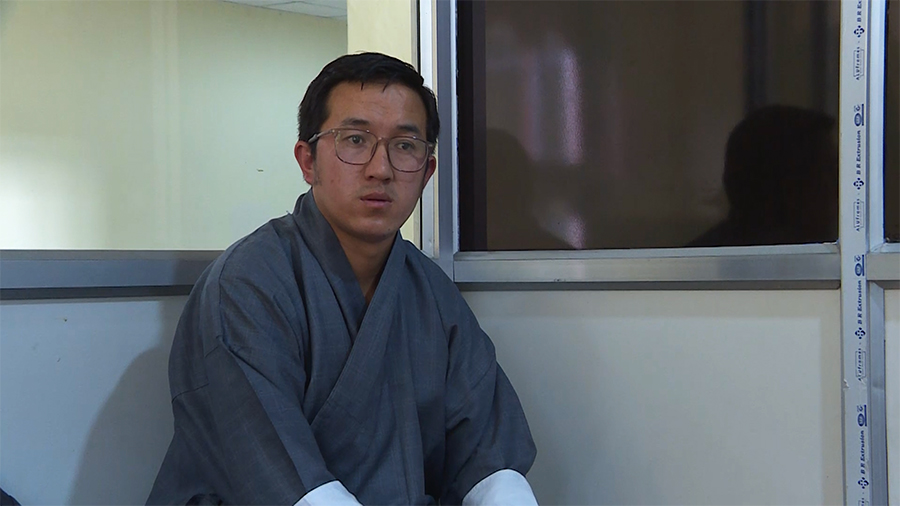
This week is observed as the International Week of the Deaf. Observing the week, the educators at Paro’s Wangsel Institute of the Deaf say implementing Early Childhood Care and Development, ECCD programmes tailored for deaf children is important. They say ECCD programmes will play a vital role in equipping deaf children with better language skills, enabling them to thrive academically, socially, and emotionally.
 33-year-old Ugyen Wangdi, a deaf instructor at the Wangsel Institute, was once a student there. To this day, he faces the challenge of understanding basic concepts due to the lack of early language exposure.
33-year-old Ugyen Wangdi, a deaf instructor at the Wangsel Institute, was once a student there. To this day, he faces the challenge of understanding basic concepts due to the lack of early language exposure.
“When I look back, I wish there were ECCDs for deaf children. It would be a place where we would learn sign language and have a language role model to understand concepts like fruits and their tastes,” said Ugyen Wangdi, Sign Language Instructor, at Wangsel Institute
In the past, the institute used to admit students as old as 22 years old. But today, parents are enrolling their children as young as five.
However, experts say language acquisition should begin even earlier, ideally in the zero to five-year age range.
For deaf children, early intervention is particularly crucial as their brains are highly receptive to language input during this period.
“90 per cent of deaf children are born to hearing parents. And these hearing parents, do not know sign language. So, there is no language input from the family. So, it has become quite crucial for us to think about ECCDs for the deaf children who will come to ECCDs and acquire language,” said Sushila Gurung, a teacher at the Wangsel Institute.
She added that to initiate ECCDs for deaf children, there is a need for more Bhutanese Sign Language Instructors who can serve as language role models for young deaf children.
Currently, the institute has only six Bhutanese Sign Language instructors for about 110 students.
“We need to have deaf instructors or deaf teachers in the classroom because when we have young deaf children, they need language role models, which is very important for them. So, we need to have something in place where these deaf adults will train to become teachers in the classroom. And another would be the infrastructure and there will be a lot more other support services that we need to start ECCDs for the deaf children,” added Sushila Gurung.
This year’s theme for the International Week of the Deaf, “A world where deaf people everywhere can sign anywhere” underscores the importance of ECCD programmes for easier communication and equal opportunities for deaf individuals to thrive, regardless of their hearing abilities.
Samten Dolkar
Edited by Sonam Pem








